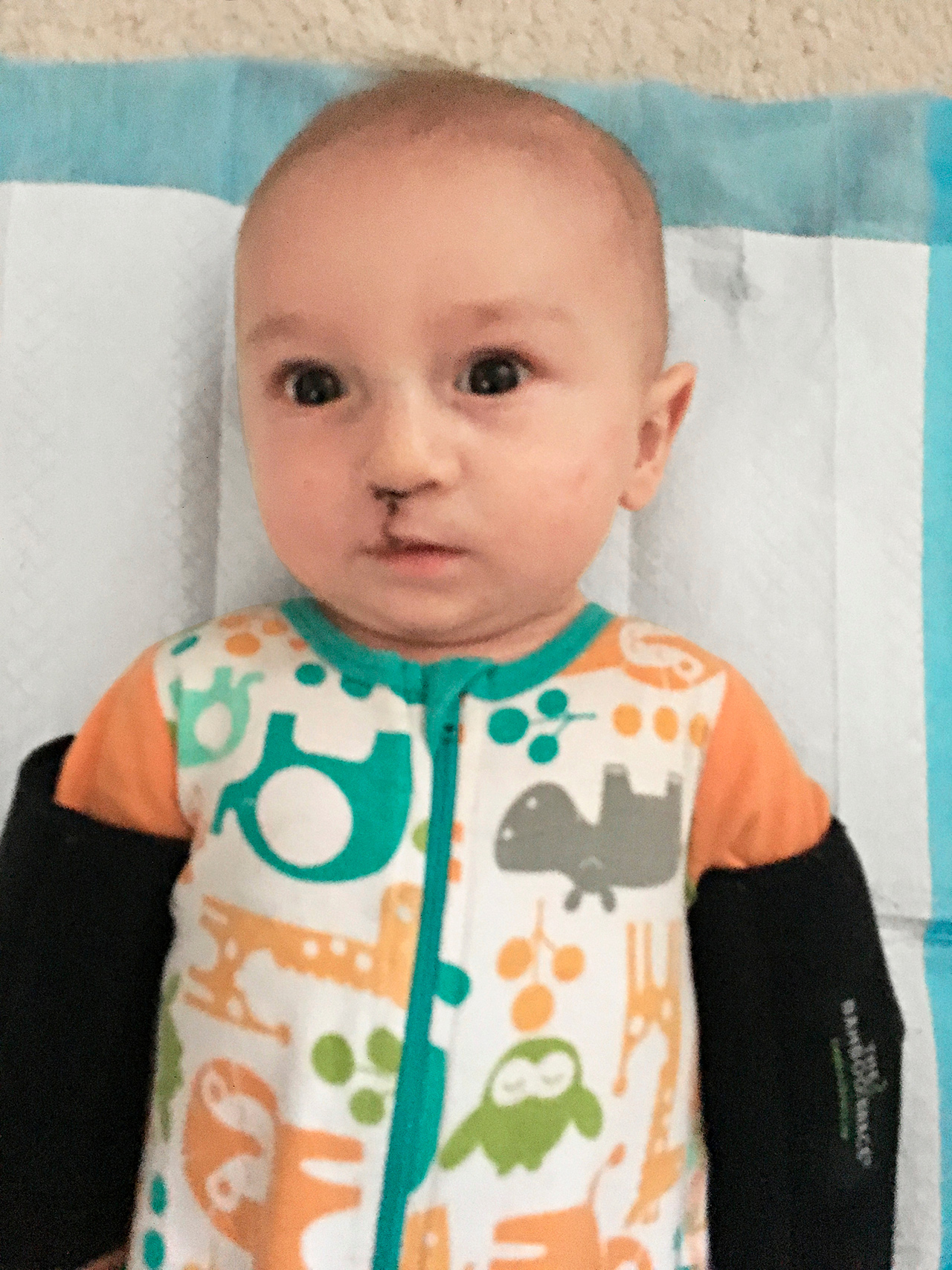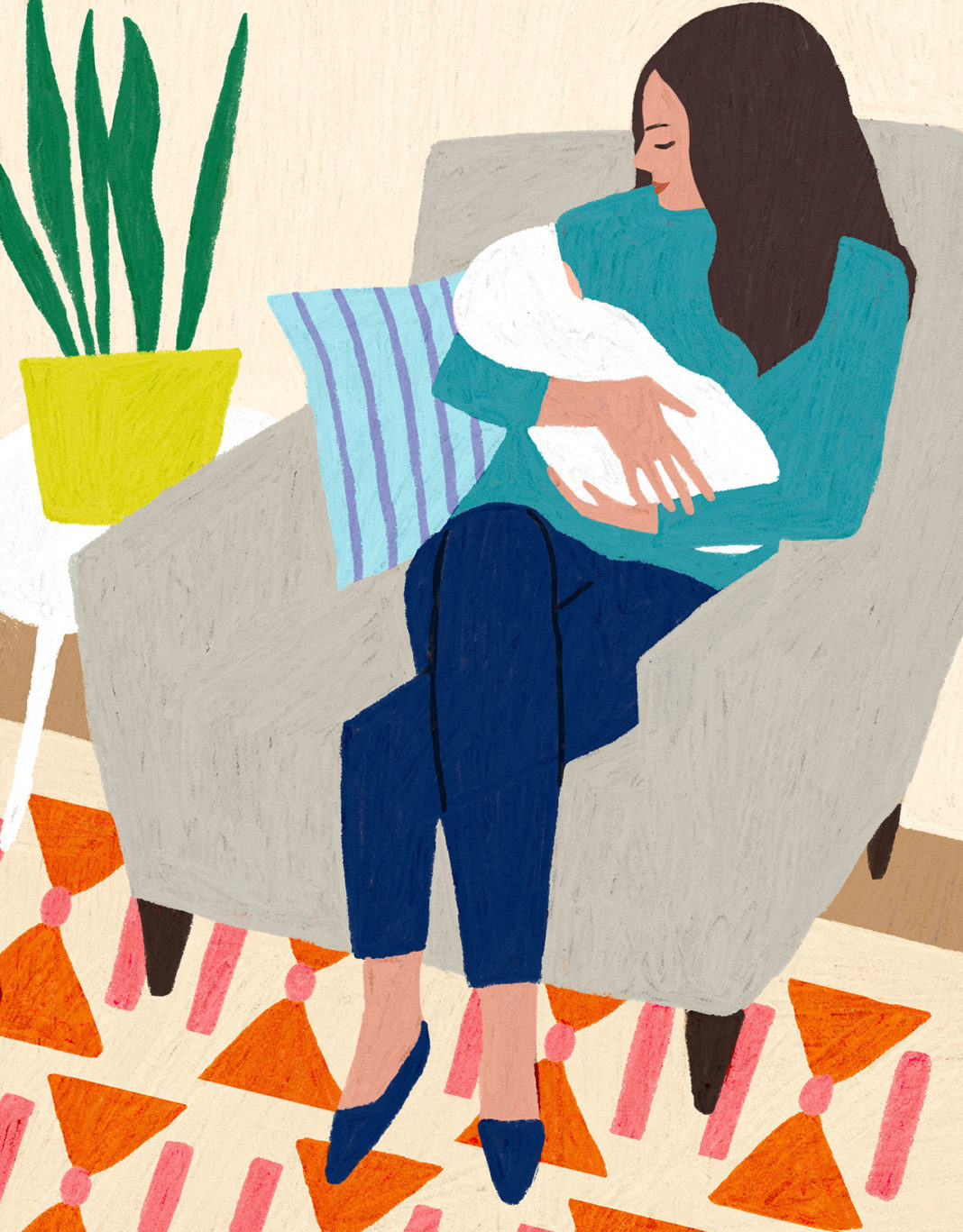
It was my birthday. The last thing I'd ever want to share with anyone. But what I wanted and what I got were two totally different things.
At my 39-week checkup the day before I would turn 36, my blood pressure was very high and my ob-gyn sent me home on bed rest. My husband, Will, and my then 4-year-old son, Noah, wished me a happy birthday with hugs and kisses that morning as I lay confined to bed. As directed, I called my ob-gyn for test results. He diagnosed me with preeclampsia and ordered an emergency cesarean later that day.
I'd been through this before. I'd had an emergency C-section four years earlier when Noah was born with the umbilical cord around his neck. So I thought I knew what to expect.
The atmosphere in the operating room was joyful. The nurses even started singing "Happy Birthday" as the doctor began the cesarean.
"Ahh! It's a … " the doctor said as he pulled my baby boy out of me—but then he just went quiet. There was deafening silence. The doctor signaled to a nurse to come take the baby. No one said a word.
"What's going on?" I demanded, while the rest of the room stared. The baby started crying, but I still hadn't seen him.
"Everything is fine," Will said reassuringly. "He's crying. He's okay."
I was near hysterics because I did not know what was happening. "What is wrong with my baby?" I remember screaming. My doctor composed himself and said, "Well … umm … he's fine. We didn't see this on any of your sonograms, but there appears to be a slight cleft."
A cleft what? Lip? Palate? Slight? Like unnoticeable? I had only heard bad stories about clefts and thought, "What did I do wrong during my pregnancy to cause this? But he did say 'slight,' right?"
After examining the baby, the pediatrician came over to me and asked, "Do you want to see your baby?"
"Yes! What kind of question is that? Give me my baby!" I yelled, still on the operating table.
"Okay, but please understand that what you're going to see may be shocking if you weren't expecting it," she warned. She handed the baby to my husband first. Will took the baby into his arms, still just out of my view, and started to cry. He kept repeating, "It's okay. It's going to be okay." When he bent down and showed me our son's face, I blacked out.
I woke up in recovery, not sure whether what had happened was real. The baby wasn't with me. My doctor pulled up a chair and started by saying, "I'm so sorry. I don't know how we missed this on the ultrasound. It appears to be a complete, unilateral cleft." So much for slight.
"But don't worry," he continued. "With a simple surgery, they can fix it right up and you won't be able to tell … "
I couldn't stop all the questions popping up in my head. A "simple surgery?" I'd known someone who had a child with a cleft palate, and it didn't seem like a "simple surgery."
"Was this something you could even pick up on an ultrasound?" I had been considered high-risk because of my age and weight and had more ultrasounds than I did with my first pregnancy—even the fancy 4-D one. After my 20-week anatomy scan, I had been sent to a specialist for what they thought was a problem with his heart, but nothing like a cleft palate had ever come up.
My doctor continued, telling me that the hospital has one of the best craniofacial plastic-surgery teams in the country. He said he'd call the team coordinator in the morning. I felt a little reassured, but Will and I still had no idea what we were dealing with.
Later on, as I sat in my bed, feeling scared about the unknown future that lay ahead for my son, a nurse brought him in. She said, "You've gotta try to breastfeed!" and placed him on my chest.
I got my first clear look at Jacob. He had a huge gap on the right side of his mouth, all the way up to his nose. His right nostril was completely flat. I later found out that this was a 30-millimeter gap. It looked like a huge wide smile. I continued my gaze up the rest of his face, and for the first time, looked into his eyes. He had the biggest, most beautiful brown eyes I had ever seen. At that moment, we recognized each other. I could tell he knew me. It was like he was saying, "Hey, Mom," with his eyes.
He rooted to my breast and tried to latch. Nothing. "What's going on?" I asked the nurse. "Can he even latch like this?"
"Sometimes they can, sometimes they can't. You have to at least try so he gets the colostrum, but you may have to pump," she explained. After several very painful tries, I gave up and asked for formula.
After two more traumatizing days of being forced to try to nurse and not getting the care I knew I needed for the sadness and anxiety I was feeling, we finally received a call from the coordinator of the hospital's cleft lip and palate team. She was on her way back to New York after a vacation and said she'd swing by to say hi on her way home. It was late and rainy on a Sunday night, so Will and I figured we would see her at some point the next day.
But at 10 p.m. on that dreary October night, a tiny woman wheeled her enormous suitcase into my recovery room and said, "Congratulations on your baby boy! He's adorable!" That was the first time anyone congratulated us. My poor baby never got the proper welcome he deserved on the day he was born. Regardless of his birth defect, Jacob was a beautiful child, and his entrance into this world deserved to be celebrated.

She sat there and talked to us for more than an hour. This was the first conversation that wasn't filled with negativity and what needed to be fixed. She validated our emotions, and reassured us that we were a team and would be in very good hands. It was the moment that changed everything. She gave us hope. I felt uplifted. That woman turned out to be our angel, and from then on, I was taken care of so completely by the medical team. She has become part of my family, and to this day, we still speak at least a few times a month.

My little birthday thief is 5 now, and he's had three surgeries so far (for his lip, gumline, nose, palate, and inner ears). He'll need future surgeries as well (for his nose and possible bone grafting of his gumline).
It hasn't been easy. But I no longer see that he was born with a birth defect. It doesn't define who he is; it's just something that happened to him. It's part of what makes him the special, strong, and fearless little boy he's growing up to be.
My greatest birthday gift takes a comb and styles his hair to one side, looks up at me with those huge brown eyes and big, beautiful grin, and asks in his sweet, innocent little voice, "Mommy, am I puhrfict?" "Yes, baby," I answer, as tears fill my eyes, "you have no idea how perfect you are."
This article originally appeared in Parents magazine's December 2021 issue as "Born Perfect." Want more from the magazine? Sign up for a monthly print subscription here
Parents magazine


































